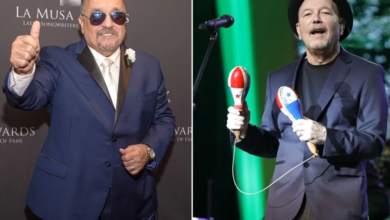2022, the Year of the Resurrection of Live Music in Latin America
After the uncertainty caused by the COVID-19 pandemic, 2022 made it clear to us that concerts and festivals are more alive than ever .

Photo: Pexels
Listen to this article
Leer en español: 2022, el año de la resurrección de la música en vivo en América Latina
Just as 2020 and 2021 were years of passivity in the world of the concert industry, 2022 contrasted with that situation and an unimaginable number of top-level shows were achieved. In addition, this year, new festivals and stages were born to host more shows in 2023.
In proportion to quantity and quality, 2022 has emerged as one of the most fruitful years in the concert industry. Throughout the year, Latin America saw debuts, comebacks, and genuine support for touring by artists in the urban genre. The festivals helped many to see their favorite artists for the first time.
This is the case of Doja Cat, A$AP Rocky, Black Pumas and Travis Scott, who this year were able to visit the region for the first time within the framework of festivals held in Colombia, Argentina, Paraguay, Chile, Mexico, and Brazil. Another notable debut of the year was that of Dua Lipa, who went through the big Latin American cities. Among the notable returns were the tours of Guns N' Roses, Coldplay, Harry Styles and Rosalía.
Additionally, as reflected by Spotify or Billboard magazine, reggaeton was the genre of the year. The vast majority of countries in the region were able to witness the tours, no longer in auditoriums, but in stadiums with Wisin y Yandel, Karol G, Maluma, Daddy Yankee and Bad Bunny.
The economic muscle and the cultural movement mean that Mexico, Brazil, and Argentina continue to be the favorite destinations. Despite the crisis it is experiencing, the Argentine public was the one that sold out and sold out the most times; while Brazil has always been the darling for European and North American artists. In a second step come Colombia and Chile.
New Festivals
The reactivation after the confinement due to the COVID-19 pandemic was accompanied by the creation of new festivals and the arrival of recognized franchises in the region. Several countries achieved successful experiences with new proposals that attract artists to continue coming.
In the case of Colombia, the Cordillera Festival was created, an event that brought together the best of Latin American talent. At a regional level there were acts such as Maná, Caifanes, Mon Laferte or Julieta Venegas, and from abroad came Kase.O from Spain or The Wailers from Jamaica.
The Primavera Sound franchise arrived for Brazil, Chile, and Argentina. There were top-level acts such as Jack White, The Killers, Arctic Monkeys and the debut in the region of Travis Scott, among others. This festival is going to be the strong competition that the Lollapalooza circuit will have.
For Mexico, the arrival of The World Is A Vampire was announced, a proposal that bets on rock. The event will be held in March of next year and has bands like The Smashing Pumpkins, Interpol, and Turnstile on its bill.
Also read:Harry Styles at Coliseo Live, the largest multipurpose stage in Latin America
New Scenarios
Despite the many criticisms it has received since its opening, Coliseo Live came to Bogotá to meet the need for more stages in Colombia. Since they opened they have received world-class acts such as Harry Styles, Arctic Monkeys, The Killers, Daddy Yankee or Ricky Martin.
In the case of Argentina, the world witnessed how Coldplay achieved 10 dates as part of their “Music of the Spheres World Tour”. The "Más Monumental" stadium, which is undergoing renovations, was the venue chosen by the British band. This venue, in addition to soccer, will be suitable for concerts and fairs when it is delivered in 2024.
However, as in Bogotá and Buenos Aires, not everything is favorable in terms of scenarios for the region. The Arena Peru in Lima was temporarily closed due to a series of complaints that were filed during the Juan Luis Guerra concert.
The only big drawback of the industry is still related to the ticket office: the high cost in some cases, overselling, reselling and the lack of measures to avoid scams with attendees.




